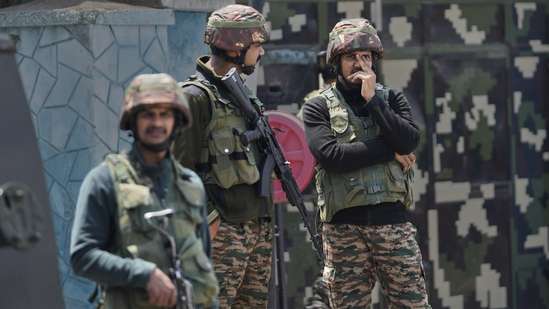New Delhi: Amid escalating tensions along the India-Pakistan border, the Indian government has issued its strongest warning yet to Islamabad, declaring that any future act of terrorism originating from Pakistani soil will be met with a “swift and decisive” response. The statement follows a string of recent drone attacks and infiltration attempts in Jammu & Kashmir and Punjab, which have been attributed to Pakistan-based terror outfits.
Speaking at a high-level press conference in New Delhi on Saturday, Defence Minister Rajnath Singh stated, “India will not tolerate any act of aggression. If Pakistan continues to allow its territory to be used as a launchpad for terrorism, there will be consequences. Our forces are on high alert, and any future act of terror will invite a swift and calibrated military response.”
Operation Sindoor: India Strikes Back
The warning comes in the wake of Operation Sindoor, an Indian military operation carried out earlier this week that targeted terror camps and logistical hubs across the Line of Control (LoC). The Indian Army released drone footage showcasing precision airstrikes on multiple suspected launch pads. According to military sources, at least seven high-value targets were neutralized in the operation.
“The intent was clear — dismantle the terror infrastructure before it escalates further,” said Lt. Gen. Arvind Bansal, Northern Command. “These were not just symbolic strikes. They sent a message — India will hit back harder.”
Diplomatic Fallout and International Support
Pakistan has condemned the strikes and called for an emergency meeting of the Organisation of Islamic Cooperation (OIC), but so far, international support seems to tilt in India’s favor. The United States and France have called on Pakistan to crack down on terror groups operating within its borders.
A U.S. State Department spokesperson said in a press briefing, “We stand with India in its fight against terrorism. We urge Pakistan to ensure its territory is not used for terrorist activities against its neighbors.”
Domestic Politics and Security Strategy
Back home, Prime Minister Narendra Modi chaired a meeting with the National Security Council to review India’s preparedness. Sources from the Ministry of Home Affairs revealed that security protocols have been upgraded in all border states, with additional forces deployed to sensitive zones.
Opposition parties, while broadly supportive of the government’s action, have called for transparency. Congress leader Mallikarjun Kharge stated, “We back our armed forces, but the government must ensure that retaliatory measures do not escalate into prolonged conflict.”
Impact on Civil Aviation and IPL
Civil aviation operations in parts of North and West India remain suspended. The BCCI, in coordination with Indian Railways, arranged special Vande Bharat Express trains to safely transport IPL players from the affected regions.
“We commend Indian Railways and BCCI for ensuring player safety. These are extraordinary times requiring extraordinary measures,” said Delhi Capitals’ Kuldeep Yadav in a press note.
What Lies Ahead
As geopolitical experts warn of a delicate phase in Indo-Pak relations, the Indian government’s message is unequivocal: the era of strategic restraint is over. New Delhi’s doctrine is now built around proactive deterrence, swift retaliation, and international diplomacy to isolate state-sponsored terrorism.
While tensions remain high, security analysts suggest that India’s calibrated military posture coupled with international diplomatic backing may pressure Pakistan into rethinking its approach.
“We are not the India of 1999. We are a new India, resolute and prepared,” concluded Rajnath Singh, echoing the government’s unwavering stance.



